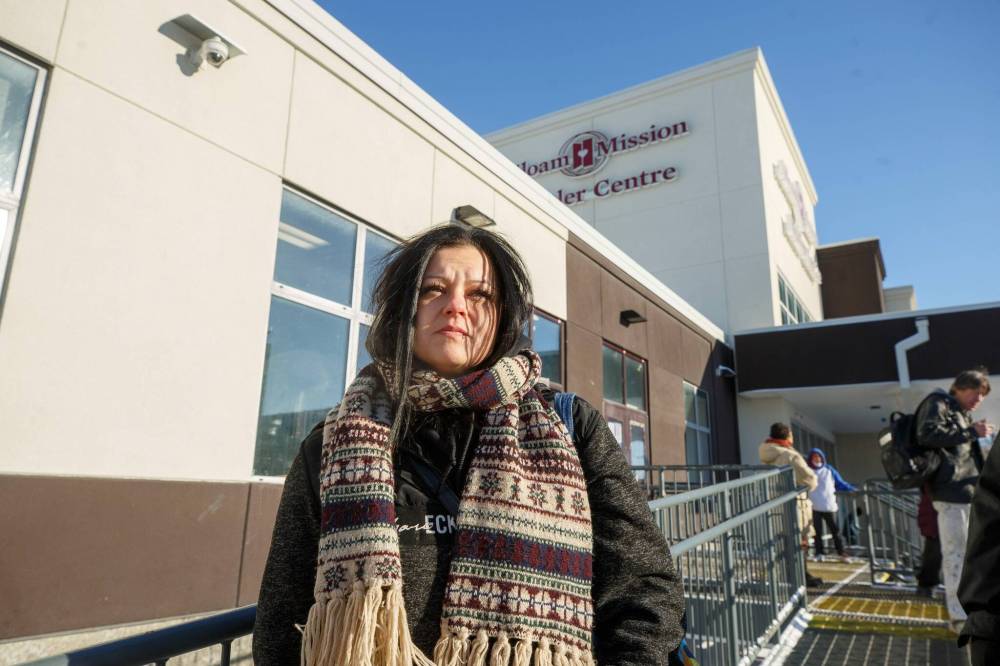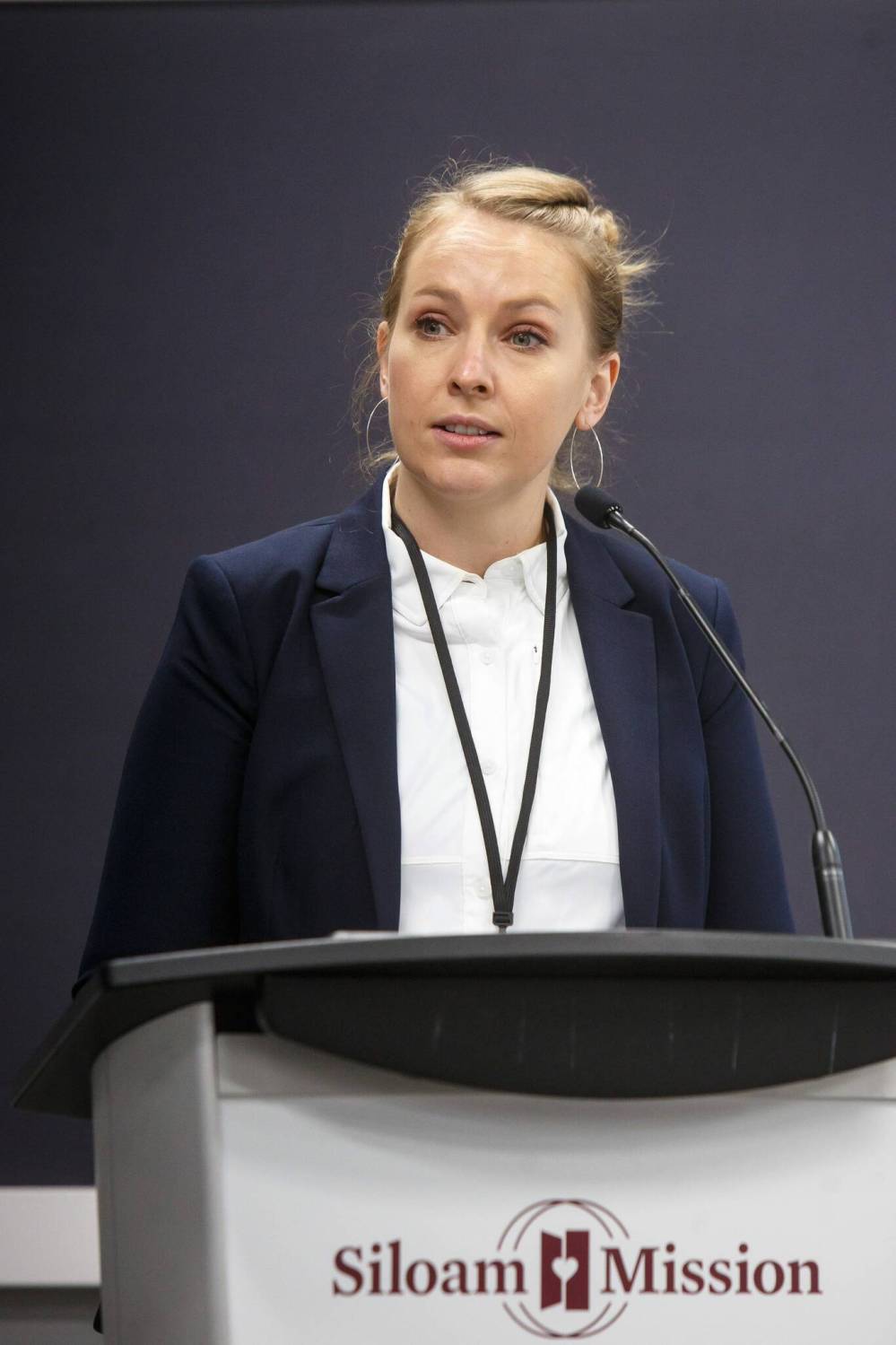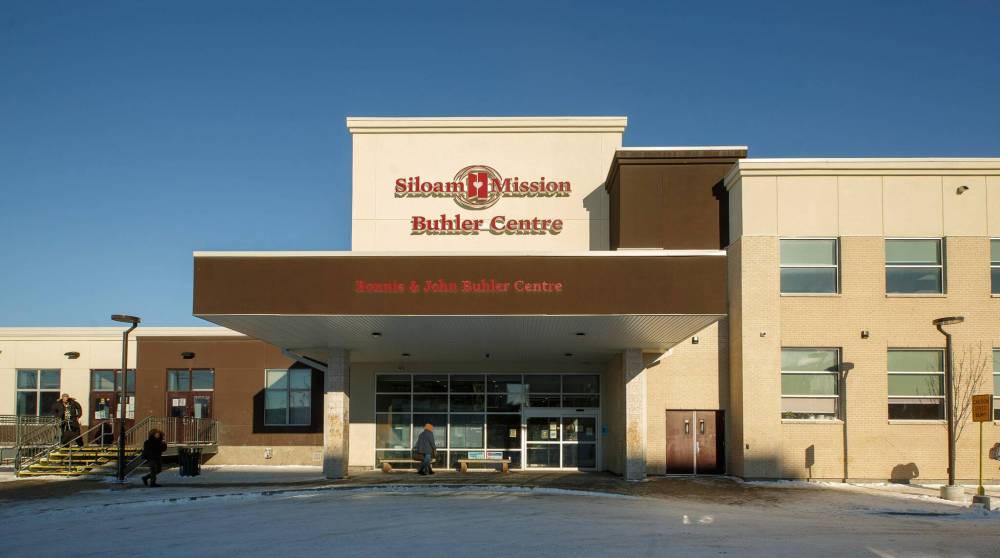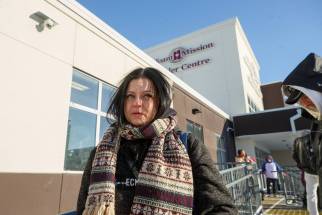Homeless, vulnerable and preyed upon: ‘it happens on the daily,’ woman says High-risk offers of drugs, warm shelter from sex-seeking predators can prove tempting to those new to life on the streets
Read this article for free:
or
Already have an account? Log in here »
To continue reading, please subscribe:
Monthly Digital Subscription
$0 for the first 4 weeks*
- Enjoy unlimited reading on winnipegfreepress.com
- Read the E-Edition, our digital replica newspaper
- Access News Break, our award-winning app
- Play interactive puzzles
*No charge for 4 weeks then price increases to the regular rate of $19.00 plus GST every four weeks. Offer available to new and qualified returning subscribers only. Cancel any time.
Monthly Digital Subscription
$4.75/week*
- Enjoy unlimited reading on winnipegfreepress.com
- Read the E-Edition, our digital replica newspaper
- Access News Break, our award-winning app
- Play interactive puzzles
*Billed as $19 plus GST every four weeks. Cancel any time.
To continue reading, please subscribe:
Add Free Press access to your Brandon Sun subscription for only an additional
$1 for the first 4 weeks*
*Your next subscription payment will increase by $1.00 and you will be charged $16.99 plus GST for four weeks. After four weeks, your payment will increase to $23.99 plus GST every four weeks.
Read unlimited articles for free today:
or
Already have an account? Log in here »
Hey there, time traveller!
This article was published 07/12/2022 (1097 days ago), so information in it may no longer be current.
Chantelle Hyland wasn’t surprised when she learned some of the victims of alleged serial killer Jeremy Skibicki had been homeless women.
Hyland, 36, has been homeless for six years. Men approaching her and other unhoused women with cruel intentions, she said, is just part of the life.
“It happens all the time. It happens on the daily, so it’s just a normal thing,” she said outside Siloam Mission’s shelter space Wednesday.
“I wouldn’t come here by myself because it’s scary, and because there’s people like that out there.”
“I wouldn’t come here by myself because it’s scary, and because there’s people like that out there.”–Chantelle Hyland
Skibicki, who has been charged with first-degree murder in the deaths of four Indigenous women, has several confirmed ties to Winnipeg’s homeless population. Morgan Harris, believed to be one of his victims, was homeless.
His estranged wife, Erin Leszkovics, told Global News they met while she was waiting for a bed at Siloam Mission. After he was violent towards her several times, Leszkovics applied for and was granted a protection order against him.
Some who knew Skibicki, such as his apartment caretaker Jeff Cohan, said some of the girls he would bring to the apartment were known to frequent shelters in the city.
Hyland said it’s a common occurrence — men purposely preying on women made especially vulnerable by homelessness, addiction or both; trying to convince them to leave shelters or the streets to stay with them.
MIKE DEAL / WINNIPEG FREE PRESS Chantelle Hyland, 36, has been homeless for six years. Men approaching her and other unhoused women with cruel intentions, she said, is just part of the life.
Hyland said she’s gained experience that makes it clear their intentions are not good, but women who are newly homeless are more likely to agree. Some are left so vulnerable by drug addiction that they feel forced to make dangerous decisions to survive.
“We’ve seen girls in that situation where they’re on fentanyl and they’ve been raped, and they don’t even know what’s going on until they come to,” said Hyland, herself seven months sober from crack cocaine.
Sometimes, they don’t come back.
“You see them, and then you don’t see them again,” she said. “We bounce around from shelter to shelter, so you see everybody everywhere. They go missing.”
At Siloam Mission, 26 of the 143 shelter beds are designated for women and separated from the wider population. Those beds, CEO Tessa Blaikie Whitecloud said, are always full.
“We’re working with other spaces to say, ‘Can we find space for women to stay with you?’” she said. “But that demand is high.”
MIKE DEAL / WINNIPEG FREE PRESS FILES At Siloam Mission, 26 of the 143 shelter beds are designated for women and separated from the wider population. Those beds, CEO Tessa Blaikie Whitecloud said, are always full.
If a woman staying with Siloam Mission feels unsafe and alerts staff, the response can vary based on the perceived level of harm. If they feel threatened by someone also accessing services at the shelter, it can mean redirecting one of them to a different shelter for their own safety.
It can also lead to a connection with a partner organization skilled in domestic-violence resources.
“I think that that’s ultimately the choice women have to make, and that people have to make, is, ‘Do I get the services that I need, but I might bump into somebody who could threaten me, or do I forgo the services that I need?’” Whitecloud said.
Demand for supports that help homeless women in Winnipeg skyrocketed during the pandemic. As people reduced the size of their social bubbles, women in crisis who might previously have been able to stay with friends or family were, in many cases, left with no place to go.
“If you’re experiencing homelessness and somebody is offering you a free place to stay, and safety, and making you feel like you matter — because a lot of people experiencing homelessness feel like they don’t matter to anybody — then there’s a vulnerability there that definitely puts people at risk,” she said.
“If you’re experiencing homelessness and somebody is offering you a free place to stay, and safety, and making you feel like you matter… then there’s a vulnerability there that definitely puts people at risk.”–Tessa Blaikie Whitecloud
Siloam is participating in a citywide group working to create access to safe, affordable, low-barrier housing in an effort to keep people who’ve recently become homeless from becoming stuck in the shelter system.
“When we think about how we can do the work of prevention, around reducing senseless loss of life, a lot of that looks like housing,” Whitecloud said. “Whether that’s prevention from people freezing to death outside, whether that’s prevention from loss of life due to violence, if people are safely, adequately housed in a supportive environment, they’re less at risk.”
Whitecloud isn’t surprised when homeless women describe gendered violence as a constant.
“They’re aware of these risks, and they’re making calculated decisions all the time on how to access their basic needs,” she said. “I think the bigger surprise to me is that we aren’t, as a society, more outraged.”
MIKE DEAL / WINNIPEG FREE PRESS Demand for supports that help homeless women in Winnipeg skyrocketed during the pandemic.
Jen Smith has been homeless for four of her 41 years. She, like many others the Free Press spoke with Wednesday, said it was sad, but not surprising, to learn of Skibicki’s connection to the unhoused community.
“I see that every day, it happens every day,” she said. “It’s common around shelters… it’s for sex, and (the men) would give them drugs.”
She knows of what she speaks. She said they try to take advantage of her addiction to crystal meth.
“I turn it down, because I know what they want. They don’t have to say what they want, I know what they want. So I say no,” she said.
It’s a frightening reality, but one she’s grown accustomed to. When she takes time to pray every day, she keeps the safety of her fellow shelter clients front of mind.
“(I pray) for everyone’s safety at the homeless shelters, and for myself and for the community,” she said.
malak.abas@freepress.mb.ca

Our newsroom depends on a growing audience of readers to power our journalism. If you are not a paid reader, please consider becoming a subscriber.
Our newsroom depends on its audience of readers to power our journalism. Thank you for your support.


















